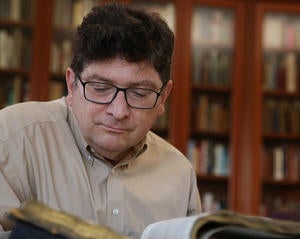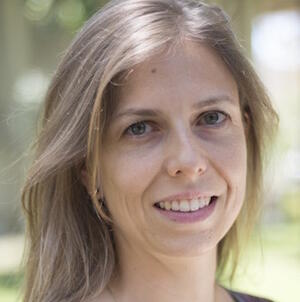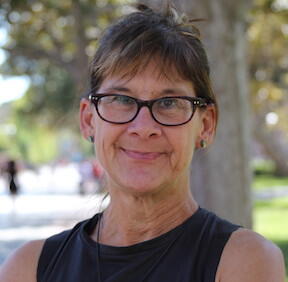Jay Rubestain, Director
Jay Rubenstein is a Professor of History who specializes in the intellectual and cultural worlds of the Middle Ages. He has written on the crusades, monastic life, and apocalypticism, among other topics. His academic distinctions include a Rhodes Scholarship and a MacArthur Fellowship.

Advisory Board
Bettine Birge
Professor Birge researches law and gender in China and Inner Asia, focusing on the Song and Yuan periods (10th to 14th centuries). Her interests include women and Confucianism, property rights, comparative systems of marriage, and issues of gender, ethnicity, and status in traditional law. Professor Birge is currently working on a book that examines instabilities and contention over issues of gender, status, and identity in multi-ethnic Yuan society.
Christelle Fischer-Bovet
Christelle Fischer-Bovet specializes in the social and cultural history of the Eastern Mediterranean from Alexander the Great to the Romans (4th c. BC-1st c. AD), with a special interest in Greco-Roman Egypt. Her book Army and Society in Ptolemaic Egypt (Cambridge University Press, 2014) combines documentary evidence (papyri, inscriptions) with social theory to examine the army in Hellenistic Egypt as a vehicle for land distribution, a provider of group solidarity, and a place of interaction between Greek and Egyptian cultures. She has also written several articles on Ptolemaic history and (forthcoming) articles on the role of ethnicity in the institutions of the new Hellenistic states. She is now preparing a new book called The Ptolemaic Empire for Oxford University Press. Her research and teaching interests focus on state formation and imperialism, military history, ethnicity and integration in multicultural societies, institutions, papyrology and Greek epigraphy, and ancient historiography.
Ann Marie Yasin
Ann Marie Yasin specializes in Roman and late antique architecture and material culture and holds a joint appointment in the departments of Art History and Classics. Her particular research interests include experience and perception of the built environment, decorative and epigraphic landscapes, commemoration, urbanism, material culture of religion, and long histories of display and reception of sites and artifacts. She received her BA in Classical Archaeology from the University of Michigan and her MA and PhD in Art History from the University of Chicago. Before joining the faculty at USC Yasin taught for three years at Northwestern University. Her research has been supported by residential fellowships at the American Academy in Rome and at Dumbarton Oaks Center for Byzantine Studies. She was named a Fellow of the American Council of Learned Societies (ACLS) for 2018-19.
Lisa Bitel
Lisa Bitel studies the social, cultural, and religious history of medieval Europe. She has written four books about religion and/or gender in early medieval Europe, one book about religious apparitions and visions in contemporary California, and has published articles about sex, dreams, architecture, and saints, among other topics. She is currently researching a book on religious change and the supernatural in premodern Europe.
bitel@usc.edu
Arjun Nair
I study Islamic Intellectual history with a focus on post-classical (after 1200 CE) Quranic exegesis and mystical commentaries on Sufi poetry. Because post-classical thinkers were frequently interested in adjudicating the different intellectual perspectives already available to them or else forging and forwarding novel syntheses from those perspectives under the rubric of verification, commentaries performed a variety of functions and were sites of innovation and creativity. My first book project, “Writing the Self, Writing Reality: Symbolism and Commentary in Islamic Mysticism”, tracks one such function in post-classical commentaries on Sufi poetry that I call mystical verification. It closely follows the ways that speculative mystics and philosopher-sages demonstrated the viability of their epistemologies and the rigor of their exegetical methods through innovative expansions of “classical” verses rich in symbolic content. In future work, I aim to excavate the hidden relations between mystical commentaries on poetry and mystical exegesis of the Quran, since both kinds of commentary were a preoccupation of post-classical thinkers.
arjunnai@usc.edu





